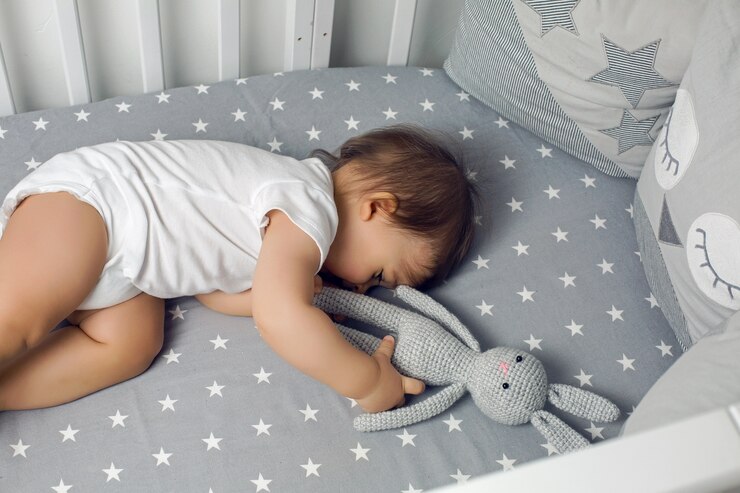Introduction:
The safety of infants during sleep is of utmost importance to ensure their well-being and reduce the risk of sudden infant death syndrome (SIDS) and other sleep-related incidents. In South Africa, it is crucial to educate parents and caregivers about safe sleeping practices for babies. This article aims to raise awareness about the importance of safe sleep and provide guidelines to promote a safe sleeping environment for infants in South Africa.
Understanding Safe Sleeping Practices:
- Back to Sleep: The American Academy of Pediatrics (AAP) recommends placing infants on their backs to sleep for every sleep time, including naps and nighttime sleep. This position helps reduce the risk of SIDS.
- Firm Sleep Surface: Infants should be placed on a firm and flat sleep surface, such as a safety-approved crib mattress, covered with a fitted sheet. Avoid using soft bedding, pillows, stuffed animals, or bumper pads, as they can pose suffocation hazards.
- Room-Sharing: The AAP advises room-sharing without bed-sharing for at least the first six months or ideally up to one year. Having the baby’s crib or bassinet in the same room as the caregiver’s bed promotes easier nighttime feeding, monitoring, and comforting while reducing the risk of suffocation.
- Avoiding Overheating: Babies should be dressed appropriately for sleep, ensuring they are not too hot or too cold. Overheating increases the risk of SIDS. Keep the room temperature comfortable and use lightweight clothing and a sleep sack or wearable blanket instead of loose blankets.
- Tobacco Smoke Exposure: Avoid exposing the baby to secondhand smoke, as it increases the risk of SIDS. Keep the environment smoke-free, both indoors and outdoors.
- Breastfeeding: Exclusive breastfeeding is associated with a reduced risk of SIDS. Whenever possible, encourage and support breastfeeding as part of safe sleep practices.
- Immunizations: Follow the recommended immunization schedule for infants. Vaccinations have been shown to reduce the risk of SIDS and other infectious diseases.
- Avoiding Co-Sleeping: Bed-sharing with infants is discouraged due to the increased risk of accidental suffocation or strangulation. If parents do choose to bed-share, they should follow strict safety guidelines, such as using a separate sleep surface and ensuring the absence of pillows, blankets, or other soft bedding near the baby.
Promoting Safe Sleep in South Africa:
- Public Awareness Campaigns: Launch targeted public awareness campaigns to educate parents, caregivers, and healthcare professionals about safe sleeping practices. These campaigns should emphasize the importance of back sleeping, room-sharing, and creating a safe sleep environment.
- Healthcare Provider Education: Train healthcare professionals, including doctors, nurses, and midwives, on safe sleep practices. They play a vital role in educating parents during prenatal and postnatal care visits and can provide guidance on creating a safe sleep environment for babies.
- Community Outreach Programs: Engage community leaders, organizations, and community health workers to disseminate information about safe sleep practices in local communities. Conduct workshops, seminars, and support groups to address common misconceptions and provide practical guidance.
- Parenting Support and Education: Offer parenting classes and support groups that cover topics related to infant care, including safe sleep practices. Providing evidence-based information and resources can empower parents and caregivers to make informed decisions.
- Maternity Ward Practices: Ensure that maternity wards and hospitals promote safe sleep practices. Train healthcare staff on safe sleep guidelines, encourage rooming-in for newborns, and provide demonstrations on safe sleep positions and environments.
- Home Visiting Programs: Implement home visiting programs where trained professionals can visit families and provide guidance on safe sleep practices. This can be particularly beneficial for families with limited access to healthcare resources.
Conclusion:
Promoting safe sleeping practices for babies is essential to protect their well-being and reduce the risk of sleep-related incidents in South Africa. By raising awareness, providing education, and implementing supportive initiatives, parents, caregivers, and healthcare professionals can work together to create a safe sleep environment for infants. Through collaborative efforts, South Africa can ensure that every baby has a secure and healthy sleep, fostering their growth and development while reducing the risk of sleep-related incidents.










